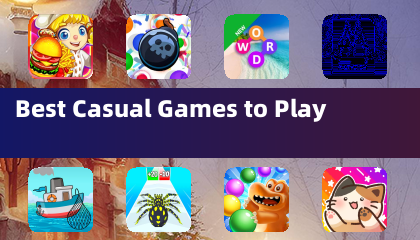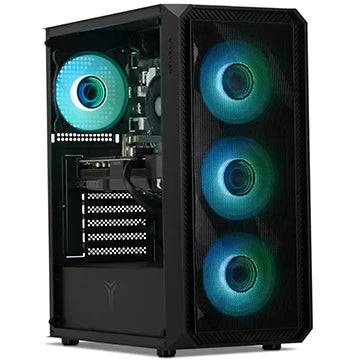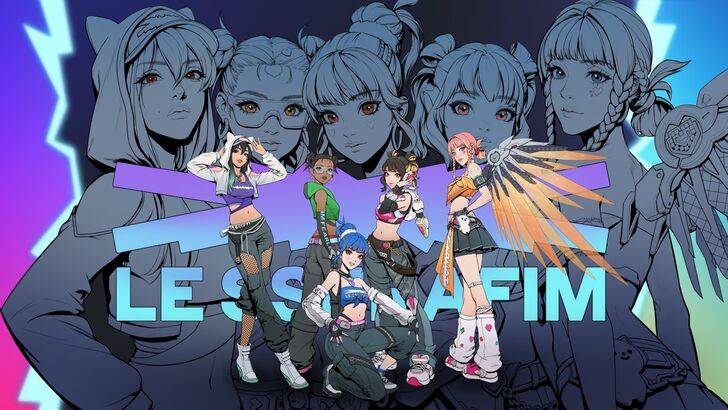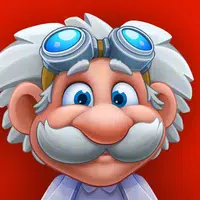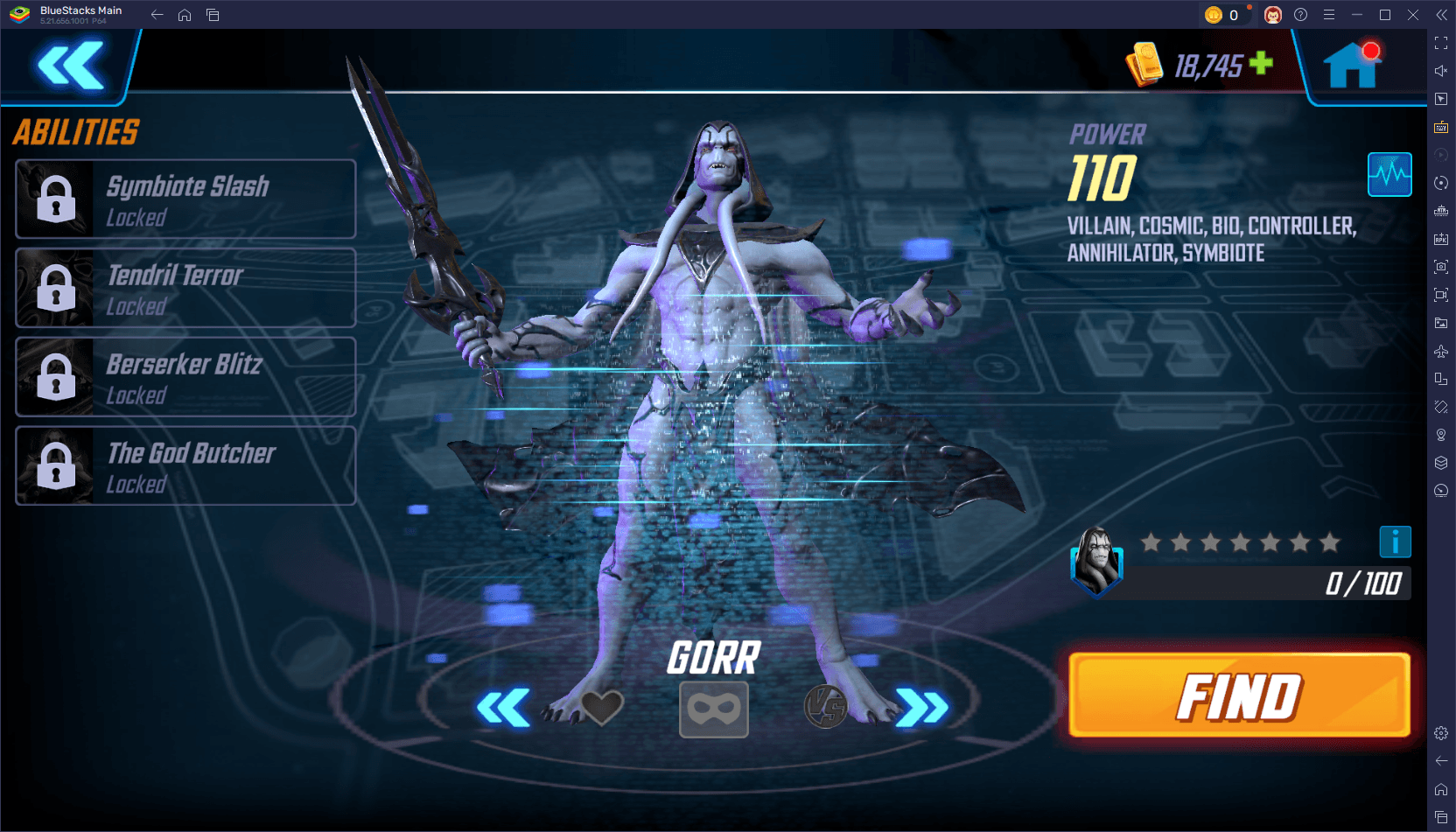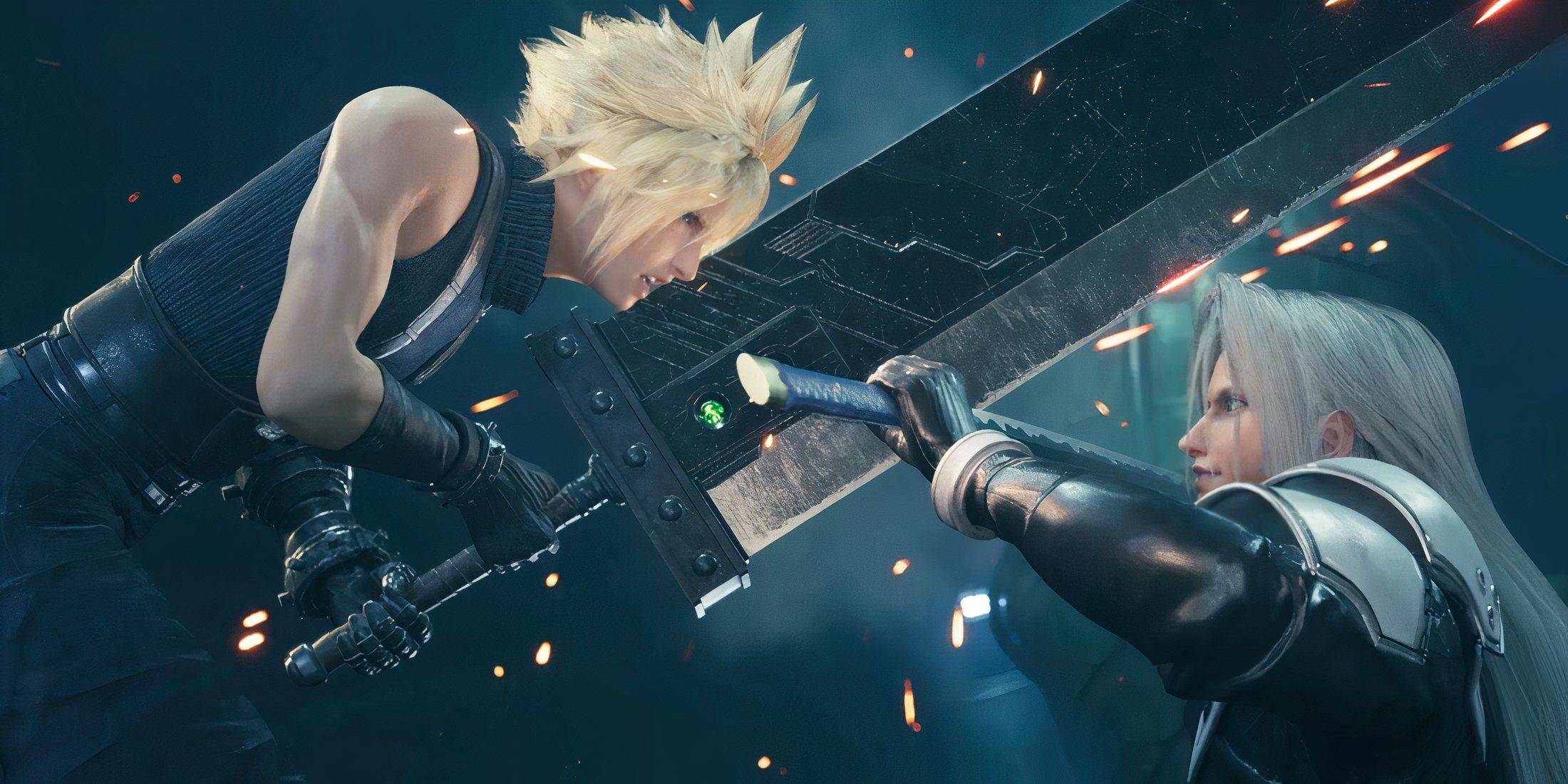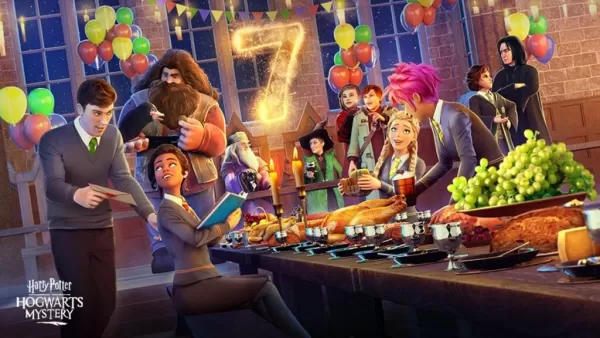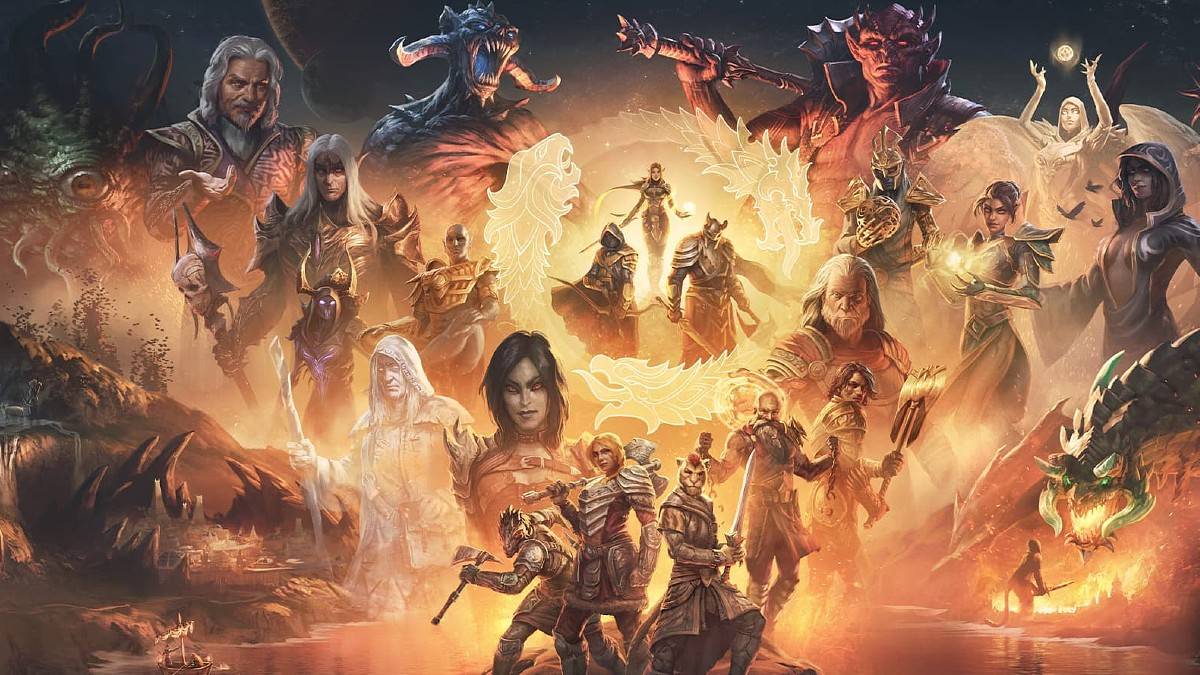Buried like a cursed treasure in the latest episode of the official Xbox Podcast was news about Playground Games’ eagerly anticipated Fable. I call it "treasure" because it included a rare glimpse at gameplay, but "cursed" because it came with the dreaded news of a delay. Originally planned for a launch this year, Fable is now slated for a 2026 release.
Delays, while frustrating, aren't necessarily a bad sign. In Fable's case, this extra time might be what's needed to craft a richly detailed world. As we wait, there's no better time to dive into the Fable series. Specifically, I recommend exploring Fable 2, the pinnacle of the series, and (re)discover the unique charm of Lionhead Studios' 2008 classic.
By modern role-playing game standards, Fable 2 stands out as unusual. Even in 2008, when compared to contemporaries like Fallout 3 and BioWare’s early 3D titles, it was uniquely visionary. While it follows a fairly traditional campaign structure with a linear main story and eclectic side quests, its RPG mechanics diverge significantly from the detailed stat systems of games like Oblivion and Neverwinter Nights. Fable 2 simplifies these elements, making it incredibly accessible, even for those who find traditional RPG stats as decipherable as hieroglyphics.
The game features just six main skills that influence your health, strength, and speed. Weapons have only a single damage stat, and armor or accessories don’t require complex stats to understand. Combat, while a staple throughout most quests, remains straightforward yet engaging, especially with creative spellcasting like the entertaining Chaos spell, which amusingly forces enemies to dance and scrub floors. Even death in Fable 2 is forgiving, with a minor XP penalty being the only consequence of losing all your hitpoints.
Fable 2 is perfect for RPG newcomers. When Oblivion's vast, open world felt overwhelming, Fable 2's Albion provided a more manageable series of smaller, easy-to-navigate maps. With the help of your loyal dog, who barks at the hint of adventure, you can explore beyond the main paths to uncover secrets like buried treasure, sunken caves, and intriguing Demon Doors. This design gives Albion a sense of scale and opportunity, even if its actual size is more limited, guiding players along linear routes between landmarks.
While Albion may not match the expansive worlds of BioWare’s Infinity Engine games or Bethesda's Morrowind, it shouldn't be judged by modern or contemporary RPG standards. Fable 2 focuses on a world teeming with life, akin to Maxis' The Sims. Viewed through this lens, it offers a remarkable simulation of society.
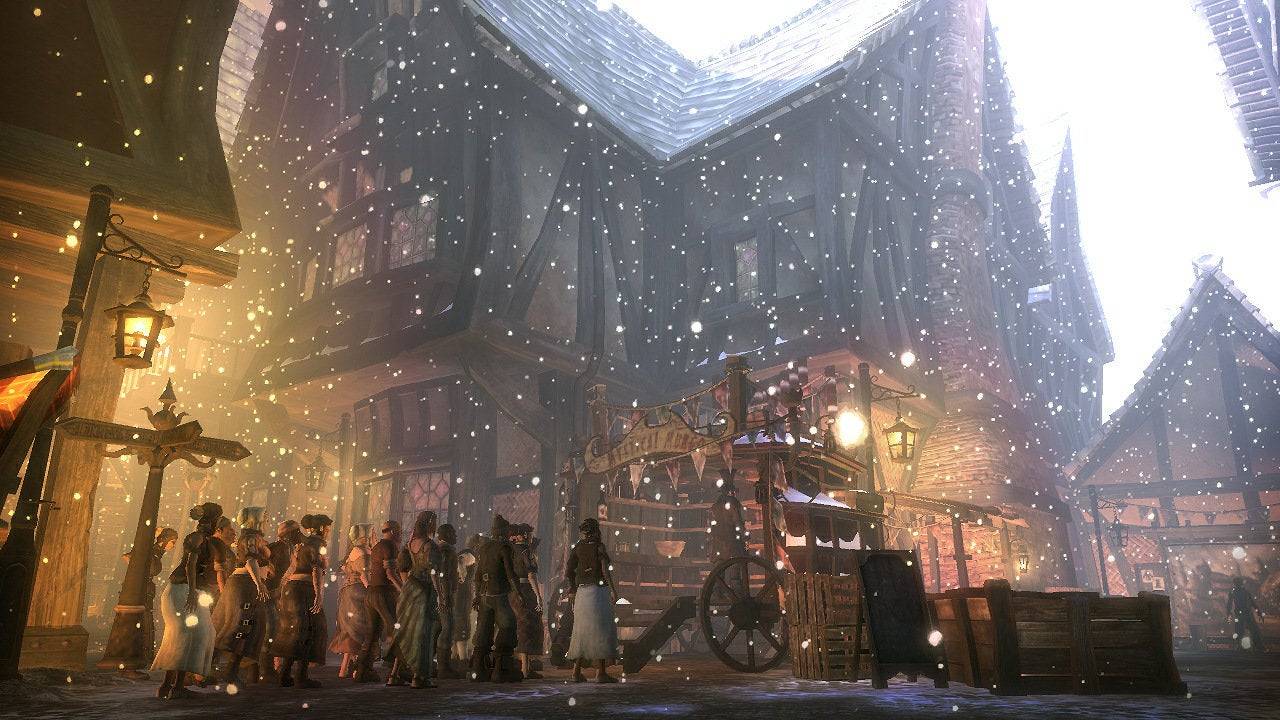
Albion functions like an organic clockwork organism. Each morning, as the sun rises, its inhabitants begin their daily routines. Town criers announce shop openings and closing times, creating a bustling atmosphere. Just like in The Sims, every citizen has an inner life driven by their roles and preferences. You can interact with them through an array of gestures, delighting, insulting, impressing, or even seducing them. A well-timed fart might have the pub patrons roaring with laughter, while mocking children could send them running to their parents. These interactions allow you to influence Albion's residents, shaping your reputation through heroic deeds or villainous acts. Fable 2's reactive NPCs and lively cities are unmatched in their uniqueness.
As a Hero in Fable 2, you embark on grand adventures, but the game truly shines when you immerse yourself in its society. You can purchase nearly every building in Albion, from houses to shops, using money earned through various jobs, such as the soothing woodcutting and blacksmithing minigames. As a homeowner, you can become a landlord, setting fair or exorbitant rents, or personalize your home. The next step might involve romancing an NPC using their favorite gestures, leading to a comedic romance and potentially a new family member. While the individual elements feel artificial, together they create a genuine sense of life.
Few RPGs have replicated Fable's approach to societal interaction. Even the acclaimed Baldur’s Gate 3 lacks organic romances and property management. Yet, Albion's authentic life simulation finds a modern counterpart in Red Dead Redemption 2. Rockstar’s detailed old West reacts to your actions, with NPCs responding believably to your behavior. If Playground's new Fable remains true to its roots, it should draw inspiration from Rockstar’s living world rather than the current tabletop-inspired RPGs.
Playground Games must also preserve Fable's quintessentially British humor, including its satirical take on the class system and cheeky humor. The game should feature a cast of beloved actors, a goal Playground seems to be achieving with talents like Richard Ayoade and Matt King. Most crucially, they must maintain Lionhead's approach to morality, with its clear-cut good and evil choices.
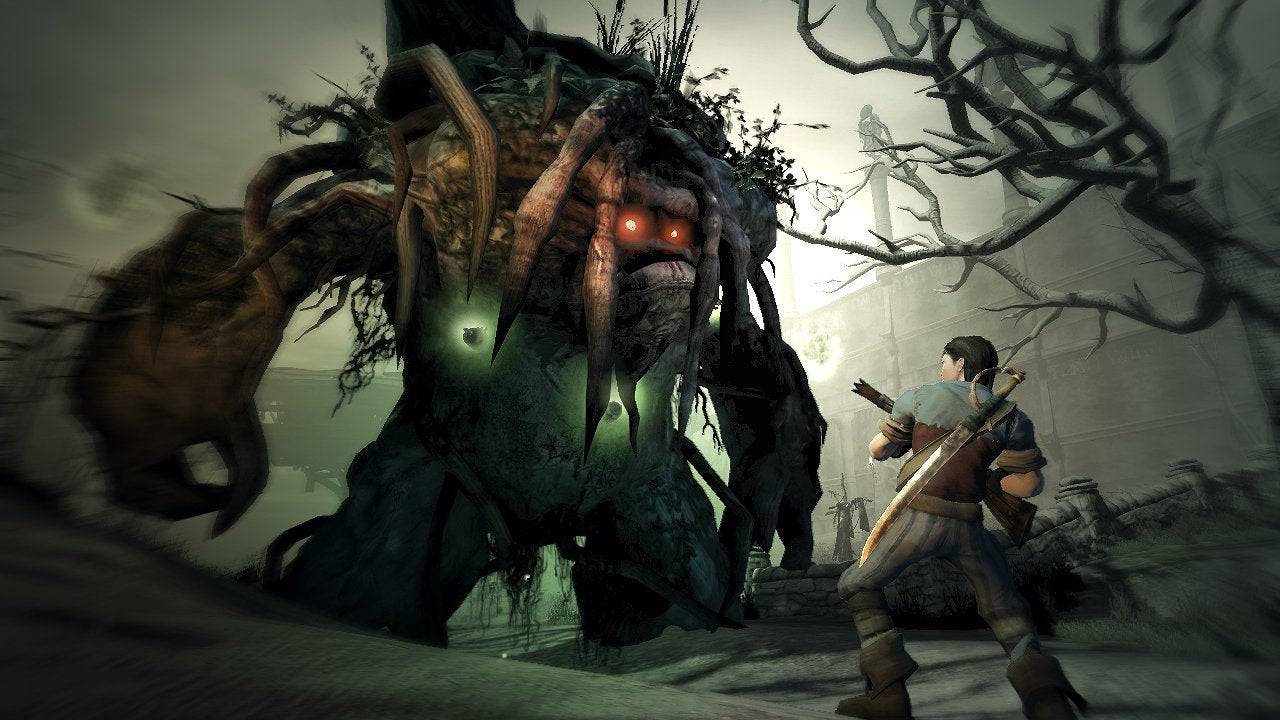
Peter Molyneux, founder of Lionhead Studios and lead designer of the Fable series, has always been fascinated by the dichotomy of good and evil. This theme was central to Black & White and continues in his latest project, Masters of Albion. Fable 2's morality system, however, is far from the nuanced choices in The Witcher or BioWare's best works. Instead, it offers starkly contrasting paths—angelic or demonic—with no middle ground. This binary approach leads to comedic extremes, such as choosing between saving a trader’s stock or destroying it, or deciding whether to torment or marry a ghost's former lover.
Recent RPG development has emphasized nuanced moral choices, but Fable thrives on its binary system. It allows players to be the ultimate hero or villain, a concept established in the original game with physical manifestations like devil horns for evil choices. Fable 2 expands on this, with quests branching into good or evil pathways, and the reactive world reflecting your choices in your reputation and alignment.
It's unclear if Playground Games will capture this essence in the new Fable. The recent 50-second pre-alpha gameplay footage offered little insight into the game's authenticity, apart from the obligatory chicken kick. However, the footage did showcase a more detailed world, with a horse suggesting a more open environment and a lush forest hinting at expansive exploration. A brief city shot, bustling and lively, gives hope that Playground is maintaining the Sims-like societal simulation that defines Fable 2.
With Fable's release still a year away, now is the perfect time to revisit or experience Fable 2. It's a testament to why the game is so cherished and why Playground Games must preserve its unique elements. We don't need a Fable that mimics The Witcher, Baldur’s Gate, or Dragon Age. We need Fable to be Fable, complete with its humor and quirks.



